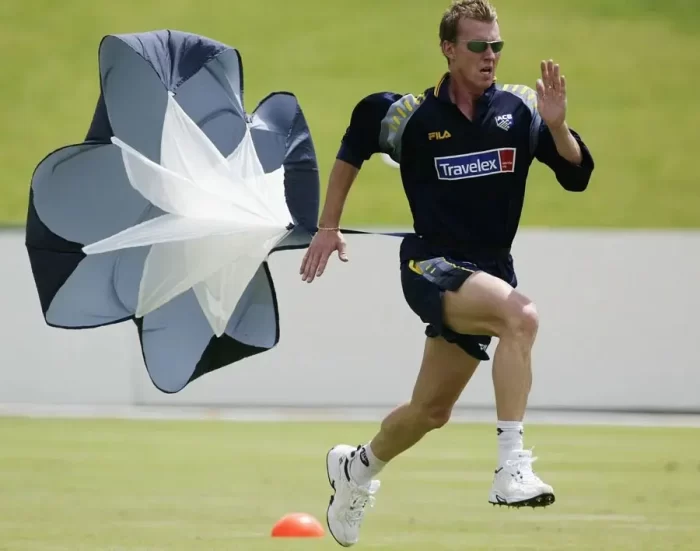Cricket is a sport that requires significant skill, fitness and training to excel at. Whether you want to make your school team or play at a competitive club level, having a proper training plan is essential. In this article we talk about How to Develop a Cricket Training Plan-Weekly Routines and Exercises.
Table of Contents
Assess Your Current Skills and Fitness

Before creating a training plan, honestly assess your current cricket skills and athletic abilities. Consider the following.
- Batting technique – How is your stance, grip, footwork, shot selection and power?
- Bowling technique – How accurate and versatile are you with line, length, variations and discipline?
- Fielding – How quick and agile are you? How good is your throwing accuracy and catching technique?
- Physical fitness – What is your endurance, strength, speed and flexibility like right now?
Identifying strengths and weaknesses will allow you to design training sessions that target the areas you most need to work on. It also gives you a baseline for measuring improvement.
Set Specific Cricket Goals
The next key step is defining what you want to accomplish from your cricket training. Be as specific as possible when setting goals, for example.
- Improve batting average from 25 to 35 runs in club games
- Increase bowling accuracy to hit the same spot 8/10 times
- Reduce 100m sprint time by 0.5 seconds in the next two months
Having quantifiable goals will help motivate you as well as evaluate if your cricket training plan is effective. Review and update your goals periodically as you improve.
Create Your Cricket Training Schedule
When designing your weekly cricket training schedule, tailor sessions to complement your current skill level and availability. Here is a sample 5 day plan.
Monday: Fitness (Strength/Endurance Training, Sprints)
Tuesday: Batting Technique Practice (Front & Back Foot Shots)
Wednesday: Rest/Recovery Day
Thursday: Bowling Accuracy Drills at Nets
Friday: Fielding Practice (Catching, Throwing, Agility)
Saturday: Match Day
Be sure to have at least one rest day where active training is minimized to allow your body to recover. While playing matches is important, the majority of your sessions should focus on skill development rather than just matches.
Sample Cricket Training Exercises & Drills
Exactly which fitness, batting, bowling and fielding exercises you incorporate into weekly routines depends on your needs. Here are some excellent cricket training drills to consider.
Fitness
- Sprints (10-30 meters)
- High Knees & Butt Kicks
- Planks & Side Planks
- Squats & Lunges
- Medicine Ball Throws
Batting
- Reaching Cones Drill
- Target Hitting vs Bowling Machine
- Batting Tee Drills
- Hitting Moving Ball Drill
- Net Batting vs Different Bowler Types
Bowling
- Bowling Lines and Lengths
- Bowling to Specific Cones
- Outswing/Inswing Target Bowling
- Bowling Machine Drills
- Net Bowling with Match Fielders
Fielding
- Lateral Cone Touches
- Ball Scoops into Targets
- High Catching vs Tennis Ball Machine
- Chasing & Throwing at Stumps
- Slips Catching Practice
Listen to Your Body
Make sure to dynamically warm-up properly before sessions, stretch afterwards and not overtrain. If you feel strained, fatigued or get injured, allow for appropriate rest before continuing. It is better to lose a few days than be out for weeks. Customize your training plan by how your body responds over time.
Track Progress
Tracking progress in fitness tests, batting averages, bowling accuracy or other key metrics motivates you to keep improving. So make sure to record performance in each training phase. If progress stalls, you may need to change certain routines. Review progress with your coach as well periodically to determine if modifications are needed. I sincerely hope you find this “How to Develop a Cricket Training Plan-Weekly Routines and Exercises” article helpful.

John Smith is the lead cricket analyst and writer for CricDen.net. With over 10 years of experience in sports journalism and a Master’s degree in Sports Science, John brings a wealth of knowledge and expertise to his insightful cricket analyses and match predictions. His passion for cricket and commitment to providing accurate, timely information make him a trusted voice in the cricket community. Follow John and CricDen for the latest cricket updates, expert opinions, and in-depth coverage on Instagram @cricden and Facebook @cricden.
